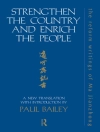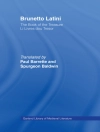Biennial volume of new and innovative essays on German Jewish Studies, featuring forum sections on Heinrich Heine and Karl Kraus.
Nexus is the official publication of the biennial German Jewish Studies Workshop, which was inaugurated at Duke University in 2009 and is now held at the University of Notre Dame. Together,
Nexus and the Workshop constitute the first ongoing forum in North America for German Jewish Studies.
Nexus publishes innovative research in German Jewish Studies, introducing new directions, analyzing the development and definition of the field, and considering its place vis-à-vis both German Studies and Jewish Studies. Additionally, it examines issues of pedagogy and programming at the undergraduate, graduate, and community levels.
Nexus 3 features special forum sections on Heinrich Heine and Karl Kraus. Renowned Heine scholar Jeffrey Sammons offers a magisterial critical retrospective on this towering ‘German Jewish’ author, followed by a response from Ritchie Robertson, while the deanof Kraus scholarship, Edward Timms, reflects on the challenges and rewards of translating German Jewish dialect into English. Paul Reitter provides a thoughtful response.
Contributors: Angela Botelho, Jay Geller, Abigail Gillman, Jeffrey A. Grossman, Leo Lensing, Georg Mein, Paul Reitter, Ritchie Robertson, Jeffrey L. Sammons, Egon Schwarz, Edward Timms, Liliane Weissberg, Emma Woelk.
William Collins Donahue is the John J. Cavanaugh Professor of the Humanities at the University of Notre Dame, where he chairs the Department of German and Russian. Martha B. Helfer is Professor of German and an affiliate member of the Department of Jewish Studies at Rutgers, The State University of New Jersey.
Table des matières
Introduction – William Collins Donahue and Martha B. Helfer
‘Ein weites Feld’: Ein Wort zu deutsch-jüdischen Studien anläßlich der Verleihung des ersten Egon Schwarz Prize for the Best Essay in German Jewish Studies – Egon Schwarz
‘An Open Field’: A Word about German Jewish Studies on the Occasion of the Presentation of the first Egon Schwarz Prize for the Best Essay in German Jewish Studies – Egon Schwarz
Laudatio for Abigail Gillman’s Prize-Winning Nexus Essay: ‘Martin Buber’s Message to Postwar Germany’ – Martha B. Helfer
Heinrich Heine in Modern German History, by an Eyewitness – Jeffery L. Sammons
Jeffrey Sammons, Heine, and Me: Some Autobiographical Reflections – Ritchie Robertson
Heine’s Disparate Legacies: A Response to Jeffrey Sammons – Jeffrey A. Grossman
My Debt to Heine and Sammons – Abigail Gillman
Die letzten Tage der Menschheit as a German-Jewish Tragicomedy, and the Challenge to Translators – Edward Timms
Edward Timms’s ‘
Die letzten Tage der Menschheit as a German-Jewish Tragicomedy and the Challenge to Translators’: A Response – Paul Reitter
Kraus the Mouse? Kafka’s Late Reading of
Die Fackel and the Vagaries of Literary History – Leo Lensing
The Parable of the Rings: Sigmund Freud Reads Lessing – Liliane Weissberg
The Poetics of the Polis: Remarks on the Latency of the Literary in Hannah Arendt’s Concept of Public Space – Georg Mein
The Marrano in Modernity: The Case of Karl Gutzkow – Angela Botelho
German Jews Dogged by Destiny: Werewolves and Other Were-Canids in the Works of Heinrich Heine and Curt Siodmak – Jay Geller
Authenticity, Distance, and the East German
Volksstück: Yiddish in Thomas Christoph Harlan’s
Ich Selbst und Kein Engel – Emma Woelk
A propos de l’auteur
WILLIAM COLLINS DONAHUE is Cavanaugh Professor of the Humanities at the University of Notre Dame.












